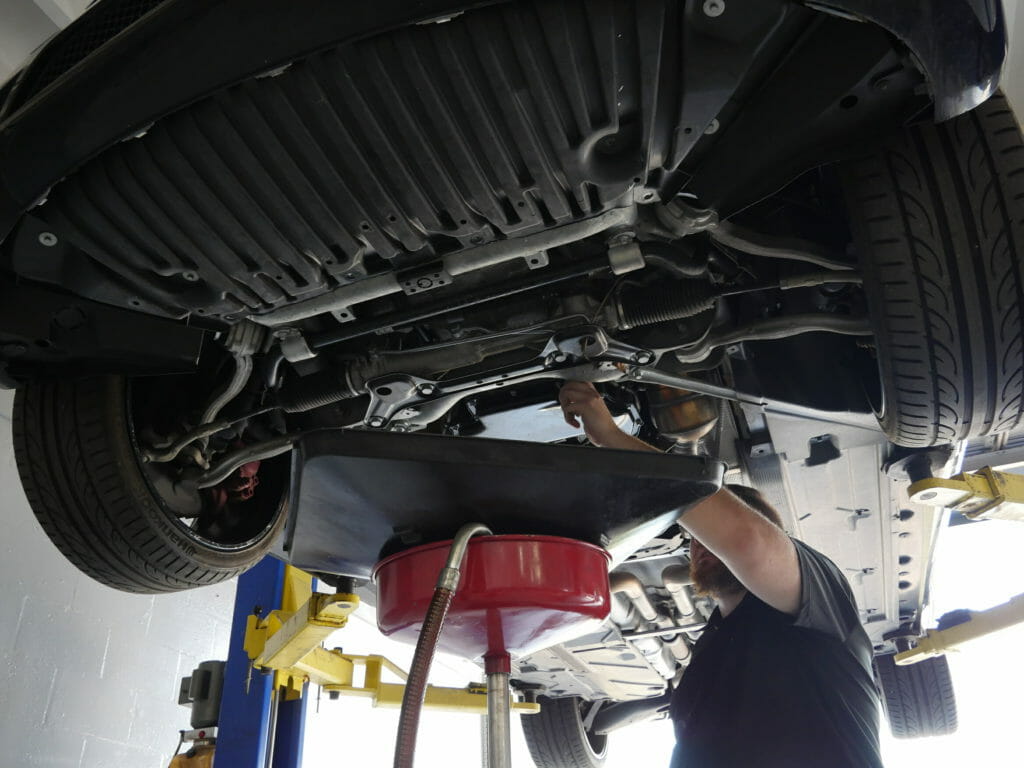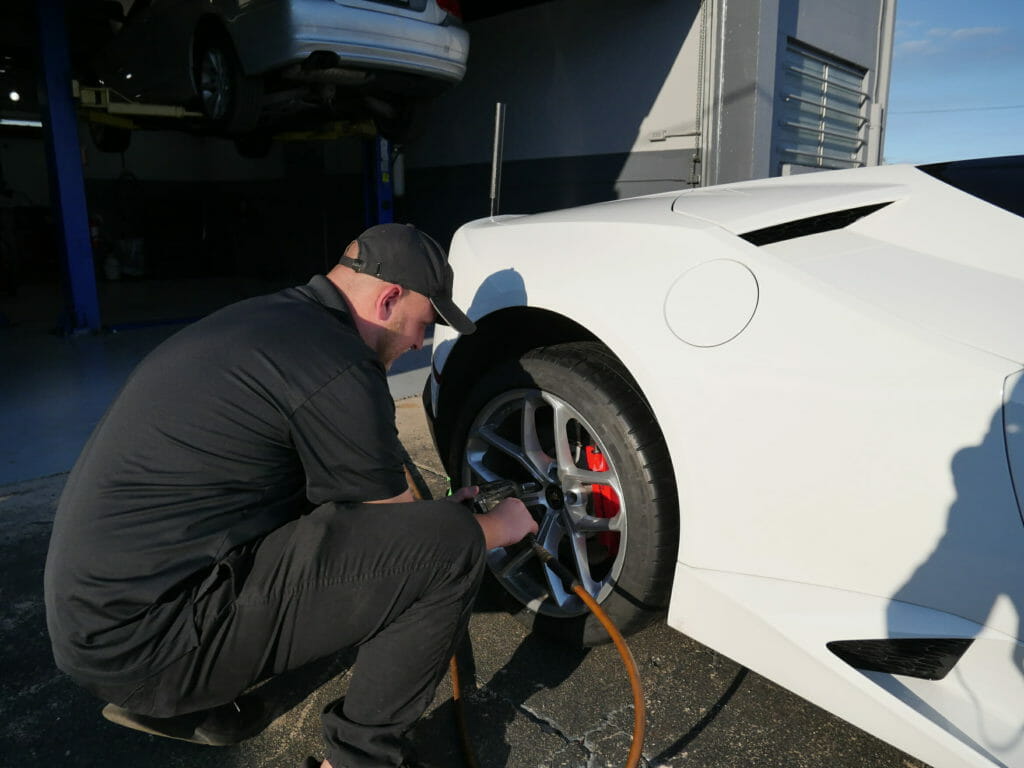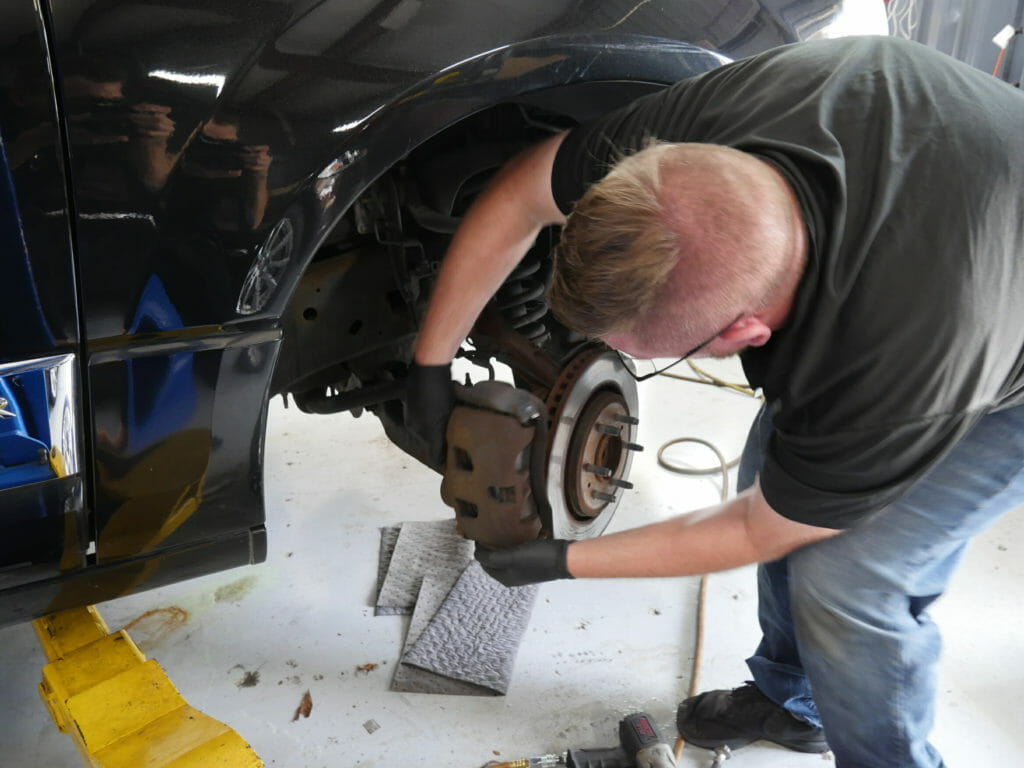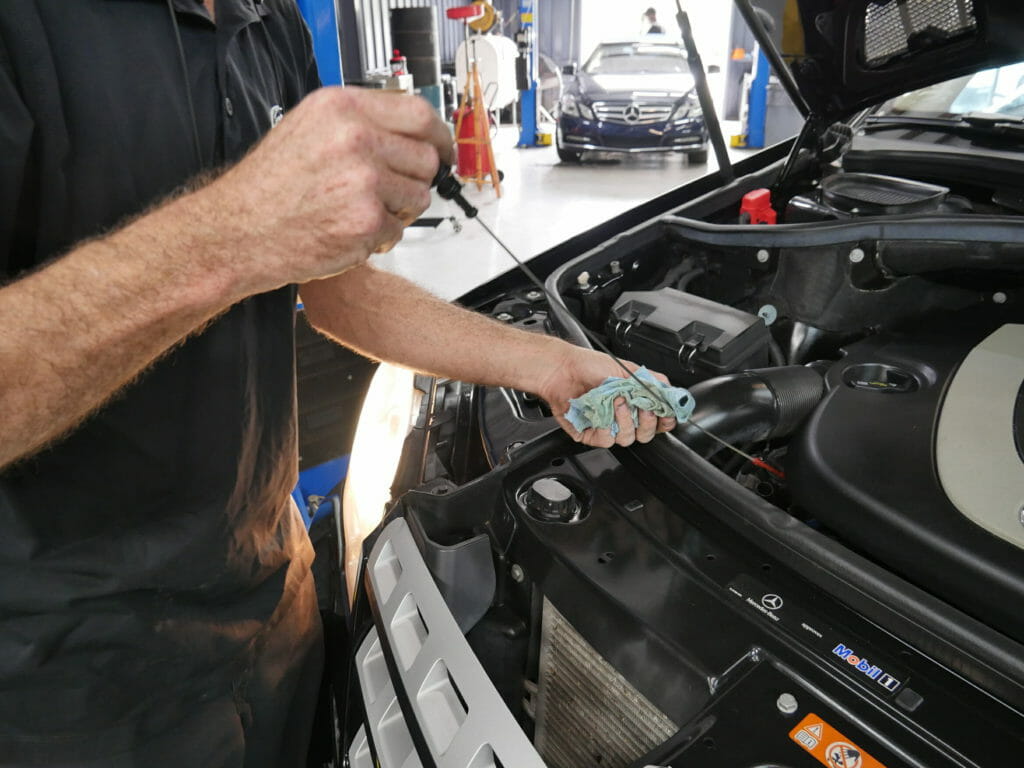



Keeping up with your vehicle’s General Maintenance needs will ensure that your vehicle enjoys a lengthy road life, saving you money and allowing you to enjoy it every day. Ensuring that your vehicle has the proper care at the right times prevents any large-scale mechanical problems, and your car will always run like it did the day you bought it. Below are some general maintenance items, along with common problems that occur from not keeping up with them, to keep our customers as informed as possible about their car care.
Changing the oil in your vehicle is extremely important to the longevity of your vehicle life. Here are some common issues that can occur from waiting too long to change your oil.
-Burned Seals: Old or low oil can cause improper circulation in your engine, leading to a breakdown of the inner seals, which can cause further leaks, and in extreme cases, cause internal detonation of key engine components.
-Leaks: Not changing the oil can cause your car to run hot, which will cause seals to expand past their intended area, allowing oil to leak internally and externally.
-Clogging: Old oil does not burn properly, and in some cases, it will become thicker, causing your oil/fuel mixture to be off, and as you might imagine, can cause your car to run sluggishly, or not at all. In addition, passages inside the engine can become clogged, stopping fluids from getting to the correct areas they need to be for your vehicle to run.
Besides not allowing you to stop safely, not changing your brakes on time can lead to a much more expensive repair bill, as you will end up having to replace more parts, more frequently. Brake maintenance is extremely important to the proper running of your vehicle, and here are some issues you may find from not changing them at the proper times.
-Grooved Rotors: When brake pads wear down completely, there is nothing stopping the caliper edges from the brake rotor. They will become grooved and pitted, and even with new pads, your stopping power will be greatly reduced. In addition, this will wear the rotor down far faster than is intended, leaving you with extra parts to replace.
-Stuck Calipers: When your brake pads are gone, the caliper will still compress, often past its intended point. This will not only damage the caliper edges, but can also cause them to be stuck, causing wear on all brake components, leading to full brake system replacements.
-Excessive Brake Dust/Rust: When brakes are operated past their intended wear, they will begin to release an excess of metal shaving dust, which will ruin your wheels, clog the calipers, and in extreme cases, throw particles out onto your paint, staining it a rust color.
Tires are a key component to keeping your vehicle safe as you travel down the road. Here are some common issues that can come from not replacing your tires in a timely manner.
-Low Traction: Tires rely on their tread to keep your vehicle planted on the road, and when it is worn down, your car will not grip the streets as it should. This can lead to sliding out, especially on wet roads or in rainy conditions.
-Tire Blowout: Once a tire is worn down past its tread, it can no longer handle contact with the asphalt, and weak areas in the rubber can suddenly give out, leading to your tire exploding, which in itself can cause damage to your vehicle, and potentially others around you.
-Tire Bubbles: A car that sits for a long period of time can end up getting bulges or bubbles in the rubber. This causes a weak point in the tire, and it will no longer hold air properly, and increases your chance of a blown tire.
Your car depends on all the fluids that run through and around the vehicle, and having the proper amount is very important to the longevity of many components and their operation. Here are some examples and their consequent problems.
-Coolant: Low or no coolant can cause your car to overheat, which can lead to many issues, including seal failure, blown head gaskets, and in extreme cases, even engine detonation.
-Power Steering Fluid: Low or no power steering fluid can cause your steering wheel to suddenly become stiff, making it difficult or impossible to execute proper turns. In addition, this will put wear and tear on the steering components themselves, leading to more expensive part repairs.
-Brake Fluid: Without proper levels of brake fluid, your car will be unable to stop, as there will be nothing allowing the brakes to open and close as they should. This can lead to excessive brake part maintenance, and there is serious danger involved with an improperly functioning brake system.